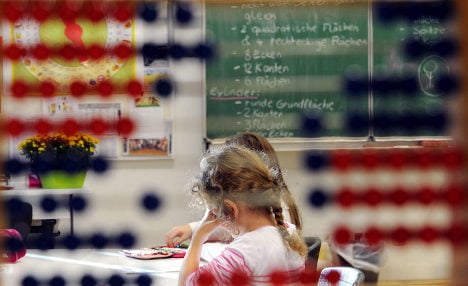Results from the IGLU reading study and the TIMSS maths test put German fourth-graders solidly in the upper third of the global rankings, behind such educational powerhouses as Hong Kong, which came first, and alongside such nations as the Netherlands, the Czech Republic, Sweden and Italy.
“We have been able to maintain our high position,” said the studies’ lead researcher Wilfried Bos.
But he admitted there was a clear share of children who do so badly in reading, writing and science that they will have trouble in secondary school. Germany also seemed to have fewer high-fliers than many other countries. “That does make one worry. We are wasting our talent,” said Bos.
One bright spot was that only 11 percent of fourth-graders – aged around 10 – do no reading outside of school. “Our children read a lot, and they like reading. That is a great achievement of our primary schools and of our parents,” said Bos.
And another showed that only 0.8 percent of children from immigrant families spoke no German at home, leading Boss to comment: “One cannot really speak of a parallel society.”
Yet the test results also exposed a stubborn German problem – a child’s performance in school is still tightly bound to the educational level of their parents.
“A child of a professor or a head doctor has a 4.7 greater chance of getting a Gymnasium school recommendation than the child of a labourer,” said Bos, referring to Germany’s university-track high schools.
DPA/The Local/hc



 Please whitelist us to continue reading.
Please whitelist us to continue reading.
Member comments